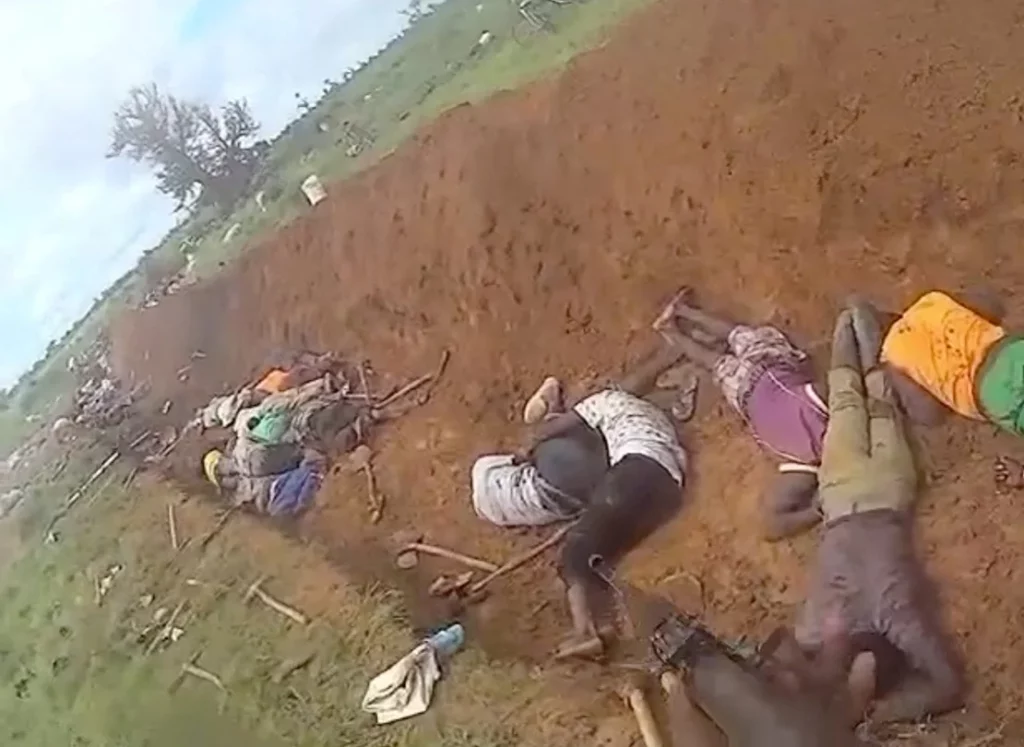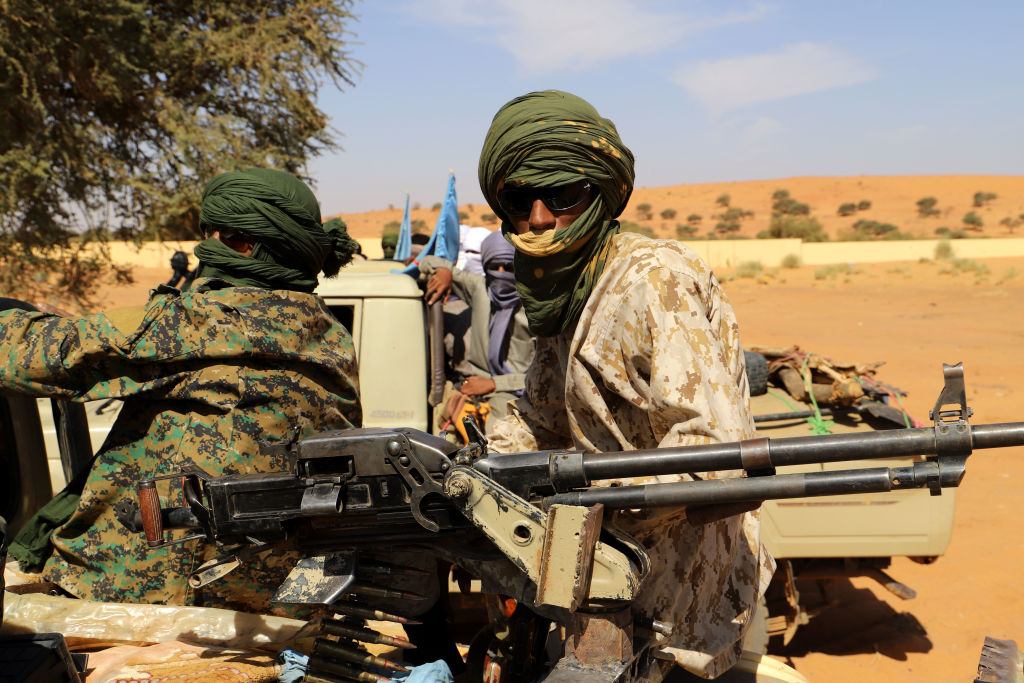In recent weeks Al-Qaeda’s Jamaat Nusrat al-Islam wal-Muslimin (JNIM) has issued statements accusing the Malian and Burkinabe armies of indiscriminately targeting civilians. In statements released through its accounts on Telegram and Chirpwire on 30 August JNIM accused the Malian and Burkinabe armies of conducting a drone strike on a vehicle allegedly carrying civilians in Mali’s northern Kidal region. It said that on 30 August, an “indiscriminate” drone strike hit a civilian vehicle in the area of “Akharbai”, without specifying if there were any casualties. It added that the strike was part of the Malian and Burkinabe armies’ series of drone strikes against civilians in the vicinity of Tinzaouatene, which is on Mali’s border with Algeria, in the Kidal region. On 26 August, JNIM issued a longer statement condemning a similar alleged incident of targeting civilians with drones.
JNIM has consistently released propaganda to support its narrative that it is a protector from, and avenger of, the human rights abuses inflicted by Malian, Burkinabe and Russian Wagner forces. The group has repeatedly condemned Russian forces in Mali for massacring civilians, swearing to avenge their victims. They have also blasted Turkey, who supply Mali with the Bayraktar TB2 drones used by the Malian army.1
Are JNIM claims to protect civilians true?
In late August 2024, JNIM militants killed up to 600 civilians who were digging trenches to defend a nearby town, according to a report by a Western news network. JNIM fighters rode into the outskirts of Barsalogho before opening fire on the villagers.

Before the massacre, the Burkinabe army reportedly forced the men of Barsalogho to the edge of town to dig protective trenches, while women and younger children were sent to cut long grass and trees to improve visibility for the soldiers stationed there. JNIM claimed responsibility stating that the group attacked soldiers and militia members excavating trenches and killed nearly 300, describing all the victims as fighters, not civilians. Several videos filmed by the militants and released on social media showed more than 100 bodies piled in a trench, most of them in civilian clothing.2
Human Rights Watch said it confirmed through video analysts and witness accounts that at least 133 people were killed, including dozens of children, and at least 200 more were injured. “The massacre in Barsalogho is the latest example of atrocities by Islamist armed groups against civilians whom the government has put at unnecessary risk,” Ilaira Allegrozzi, senior Sahel researcher at Human Rights Watch, said in the report.
The government’s reliance on armed civilian auxiliaries, known as Volunteers for the Defense of the Homeland, or VDP, to fight militants is putting civilians in great danger, Allegrozzi told The Associated Press, as many become targets of jihadis who accuse them of being supporters or even members of the VDP.
Human Rights Watch has previously attributed other human rights abuses to JNIM. On June 30, four alleged JNIM fighters killed two civilian men in the village of Niamana. A 40-year-old villager claimed “The jihadists came here in 2021…. They prohibited us from reporting their positions in the military…we were scared. We accepted and everything was fine…until the recruitment of VDPs. In June 2023 the jihadists warned us not to join the VDPs, threatening us with eviction or attack… They gave us 24 hours to leave, they said that if they found anyone in the village, they would kill them.”3
On June 16 JNIM claimed responsibility for a June 11 attack on an army base in Mansila, claiming to have killed 107 soldiers as well as taking 7 captives. Witnesses claim JNIM also killed at least 20 civilians in Mansila and burned some homes during the attack. This information has been corroborated by several international media outlets.
On May 22 JNIM attacked a VDP base and IDP camp in Goubré, killing at least 80 people, including 8 VDPs and 72 civilians, 6 of them children. Witnesses said they believed JNIM carried out the attack in apparent retaliation against villagers who refused to join JNIM ranks.
Despite meaning the support group for Islam and Muslims JNIM targeted both a Mosque in Natiaboani and Church in Northen Burkina Faso demonstrating that Muslims are not exempt from JNIM attacks.4
The Hadith on hypocrites Sahih al-Bukhari 34 suggests that there are four signs that make someone a pure hypocrite and whoever has one of the following four characteristics will have one characteristic of hypocrisy unless and until he gives it up:
- Whenever he is entrusted, he betrays
- Whenever he speaks, he tells a lie
- Whenever he makes a covenant, he proves treacherous
- Whenever he quarrels, he behaves in a very imprudent, evil and insulting manner
It is important to note that the Prophet (peace be upon him) mentions that having even one of these traits can be considered as a sign of hypocrisy. It is a reminder for us to be truthful, honest, trustworthy, and respectful in all our dealings with others. How many Muslims would associate these characteristics with JNIM militants?5
1 www.understandingwar.org/backgrounder/africa-file-september-19-2024-jnim-strikes-bamako.
2 www.hrh.org/news/2024/09/18/burkina-faso-islamist-armed-groups-terrorize-civilians
3 www.hrh.org/news/2024/09/18/burkina-faso-islamist-armed-groups-terrorize-civilians
4 Aljazeera.com/news/2024/2/26 rebels-attack-mosque-eastern-burkina-faso
5 Sunnah.com

